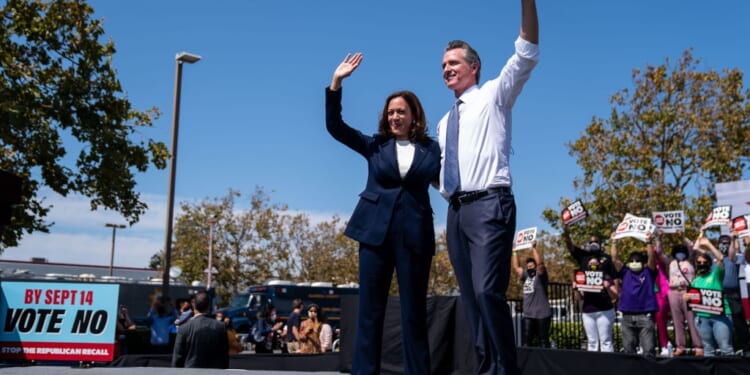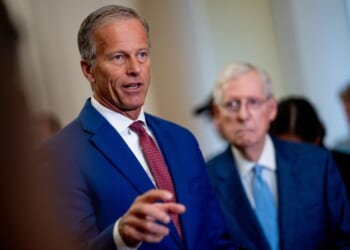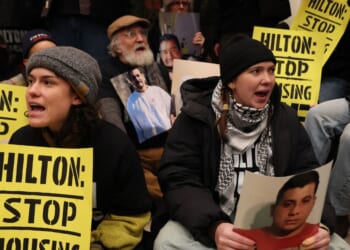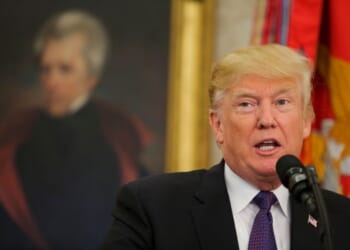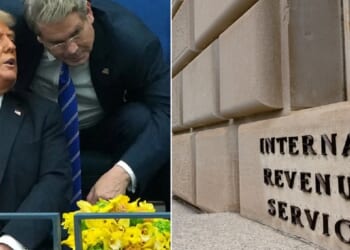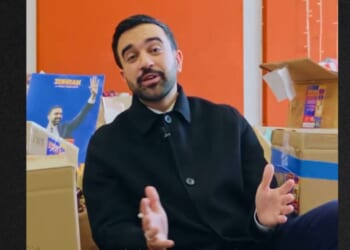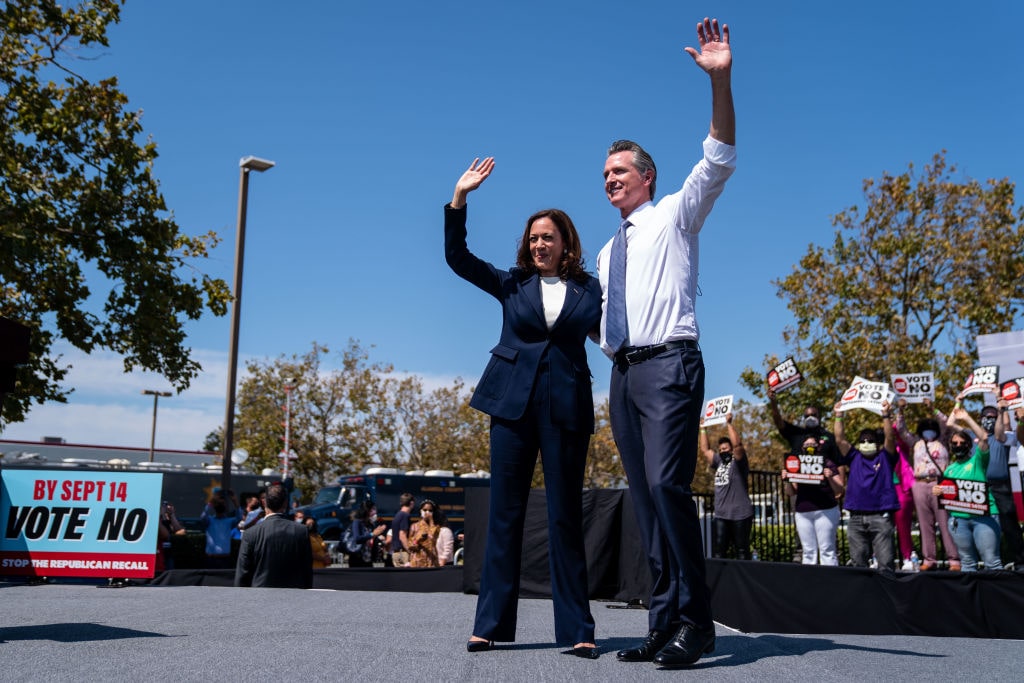
Will Kamala Harris and Gavin Newsom both run for president – and, if so, is there any possibility of a shared ticket? For that matter, is it even legal for a president and vice president to be from the same state? It’s a question that might not come up often in presidential politics, but it’s far from new. We’re still a few years away from the next presidential election – and certainly the midterms next year are the more immediate concern – but recent comments made by these Golden State politicians raise the specter of this interesting conundrum once again for 2028.
Kamala Harris – ‘I Am Not Done’
After two failed runs for president – the second of which was while serving as vice president – one might think it’s time for Kamala Harris to hang it up or, at the very least, that America has moved on to bigger and better things. The former VP and some recent polls across the nation, however, indicate otherwise. And after all, why not? Joe Biden flopped on the national stage twice before finally winning a residency at the White House in 2020.
In a recent interview with BBC News, Harris told interviewer Laura Kuenssberg regarding the possibility of another presidential run: “I am not done.” Kuenssberg came back with: “But when you look at the bookies’ odds, they put you, as an outsider, even behind Dwayne ‘The Rock’ Johnson.” Harris then verified what many Americans probably already assumed after her latest electoral loss: She never listened to the polls.
Speaking of polls, however, a look at RealClear Polling’s 2028 surveys shows many Democrats across the nation still want to see her run again. The 2028 New Hampshire Democratic Presidential Primary Poll, released by the University of New Hampshire on Monday, October 27, showed the top four contenders so far polling fairly close together. Pete Buttigieg led with 19 points, while California Governor Gavin Newsom took second at 15, Rep. Alexandria Ocasio-Cortez (D-NY) came in third at 14, and Kamala Harris rounded out the top four with 11. She’s tracking fourth place in Maine, as well, and with about the same spread. In a September RCP Average of four national polls, however, she came in second behind Newsom, 20 points to his 25, with Buttigieg in a distant third at 11.8.
So perhaps it’s fair to say she isn’t done. Certainly, if she were to run again in 2028 – which doesn’t seem terribly unlikely – there is a strong base amongst Democratic voters who still want her.
Gavin Newsom – ‘Fate Will Determine’
Of course, what most of those polls show is that Gavin Newsom has a much better chance of winning the Democratic primary than just about anyone else nationally. Even in the northeast, where he falls behind Buttigieg and Ocasio-Cortez in some venues, Newsom polls higher than Harris. So, will he run?
Maybe. Well, let’s say, probably. When asked by CBS News Sunday Morning if he planned to make a decision on whether to run for president once the midterms were over, he said: “Yeah, I’d be lying otherwise.”
Newsom’s term as governor is up in January 2027, and he’s term-limited, meaning he can’t keep his current job past that point. The Golden State golden boy has spent the last few years seemingly growing his own national profile, though he has, in the past, been coy about discussing any future bid for the White House. He cautioned even now that 2027 is “years away,” and said of the outcome of that eventual decision: “Fate will determine that.”
Governor Newsom did clarify his position a day later with CNN. “People talk about it and you’d be lying if you haven’t thought about it, processed it,” Newsom said. “But quite literally I’m making the case – that’s why I have this initiative, Prop 50 – there might not be a 2028 election that’s free and fair.”
“I just think we’re on the other side of something radically different, not marginally different,” he continued. “Everything has changed in terms of my mindset, my focus, my energy, my perspective on the world we’re living in.”
Presidential Politics and the Constitution
While any one of those top four people seems like they could be contenders in 2028 – and certainly wouldn’t surprise anyone by declaring after the midterms – there exists the possibility of a Newsom-Harris or Harris-Newsom ticket. And that raises the question of legality. Some question whether a president and vice president can be from the same state. After all, it simply hasn’t happened in modern history. Then there’s that famous example from the 2000 election, when Dick Cheney re-established his residency in Wyoming to avoid running as VP from the same state as presidential contender George W. Bush of Texas. But was he required to by the Constitution or some other law, or was it a matter of political expediency?
Well, there’s probably only one person who can accurately answer the question of Cheney’s motivations – and there certainly are valid political reasons for not running from the same state that don’t have anything to do with the law. Often, when a presidential candidate picks a running mate, it’s to spread out his or her political capital among either different demographics or regions of the nation. Joe Biden picked a “woman of color” from the other side of the country to pick up female, black, and West Coast votes and donors. Despite being two old white guys living in Texas at the time, Bush and Cheney almost certainly benefited from the latter’s move back to Wyoming by drawing more votes from the Western US and Rocky Mountain region.
But had he not made the move, it could have created an interesting legal situation. To answer the constitutional question, there’s nothing that forbids the president and vice president from being residents of the same state. However, the 12th Amendment reads, in part:
“The Electors shall meet in their respective states, and vote by ballot for President and Vice-President, one of whom, at least, shall not be an inhabitant of the same state with themselves…”
So, while nothing forbids two candidates from the same state from winning nationally or taking office, they couldn’t both win in their home state. Now, in many elections, that’s not a problem. One of two same-state candidates could lose their state’s electoral votes and still win if the margin is big enough and the number of electors lost is small enough. Barack Obama and Joe Biden beat John McCain and Sarah Palin 365 to 173 in 2008. Had Obama picked a running mate from Illinois and then one of them had to lose those 21 electors, both would still have been just fine (assuming he didn’t lose too many states by not running with Biden).
But what about Bush and Cheney? That election was close enough that if one candidate had to sacrifice the 32 electors of Texas in 2000, the outcome would have been different. Since electors cast two different ballots, one for president and one for vice president, such a situation would have either resulted in President Al Gore and Vice President Dick Cheney, or – more likely – President George W. Bush and Vice President Joe Lieberman.
Now, let’s look forward to a potential 2028 Democratic ticket featuring both Harris and Newsom. Could they legally take office if they won? Of course! But it seems highly unlikely they’d stand a chance of making it together. While it seems so far to be a fairly tight race for the Democratic primary, that’s hardly the case for the GOP. JD Vance is polling well above anyone else in almost every survey for the Republican primaries – and no polls as of yet give any Democrat contender a shot at beating Vance without California’s 54 electors.

